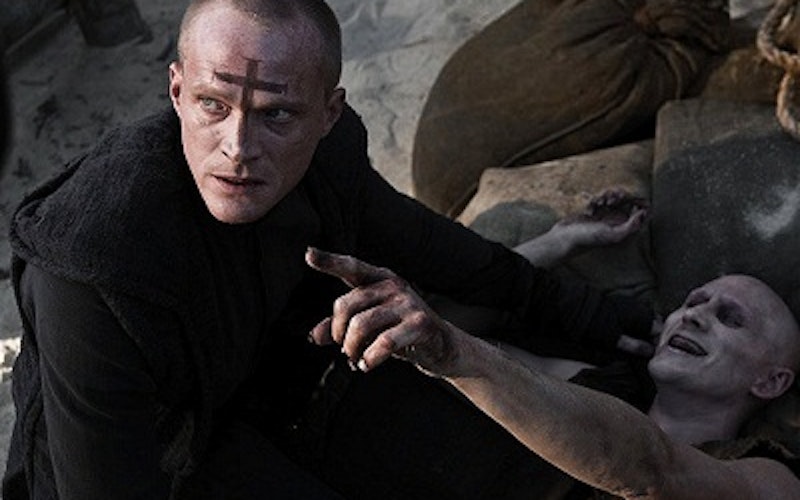
Culture At Large
The Five Pastors You'll Meet in Hollywood
In the film Priest, opening Friday, the titular clergyman is a divinely gifted warrior priest belonging to a sacred order of vampire assassins. Accuracy to real-life clergy is questionable.
Still, I’m betting this priest is not all that different from other fictional clergy characters. After all, movie and TV pastors and priests tend to fit very distinct molds. In fact, if you see Christian clergy on the screen, chances are he or she can be described as one of the following:
Lapsed. Narratives with a pastor or priest often include an excuse for why he or she acts in ways someone may not expect - including, apparently, the tendency to doubt or struggle. One such device is featuring those who have left the faith - or at least, the church. In faith-affirming films such as The Apostle and Signs, this device allows for vulnerable drama as the lapsed believer navigates through trial and eventually re-commits to faith. In other films, such as Contact, lapsed clergy seem to speak for a public that wants a spiritual voice, but not one attached to a particular religious system. In the case of Harvey Keitel in From Dusk Till Dawn, he was probably only written to be lapsed so he could make holy water - and still kick vampire butt.
Corrupt. With the sexual abuse scandals of the last 20 years, the mind first turns to predatory Catholic priest characters like Father Brendan Flynn in Doubt, but criminal, sketchy or villainous clergy are not new. These portrayals include huckster profiteers - Leap of Faith,Dragnet,O Brother, Where Art Thou?,The Tudors - and those too self-interested to do the right thing -Agnes of God,The Da Vinci Code,Angels & Demons,At Play in the Fields of the Lord.
Likable, but… This seems to be a growing category: Clergy persons who are nice enough, but seem to stand for nothing, don’t know what they believe or just have confused theology. Moral but harmless. I call these characters Friar Tucks. He’s the perfect example: jovial, one of the good guys, but not so strong on the theology. Some don’t seem to really believe - George Carlin in Dogma, Robin Williams in License to Wed - some don’t know what they believe - Rev. Lovejoy in The Simpsons - and some aren’t much more than “nice” (Father Mulkahy from "M*A*S*H," Father Dowling from Father Dowling Mysteries and Edward Norton in Keeping the Faith).
Stuck-in-the-Mud. If it’s an older member of the clergy, chances are the character is an opponent to change, a right-winger, a zealot or a disciplinarian. The poster child for this: John Lithgow in Footloose. Then again, Hugh Grant filled the role in Sirens.
Faithful. These are the characters we hope the real-life versions match. They’re not perfect, but they are thoughtful, authentic spiritual shepherds with real convictions they stand up or sacrifice for. Maybe most importantly, they are well-rounded and multi-dimensional. Examples include Father Janovich from Gran Torino, Father Gabriel in The Mission, Shepherd Darrial Book in Firefly and Serenity and smaller - but influential - roles like the priest on NYPD Blue who stayed in Sipowicz’s face about his drinking.
Are there other categories? Maybe, but every character I found in my research - obviously I couldn’t list all of them here - fit into these five categories (or a sub-category). But this is where the discussion starts. What patterns have you seen in clergy characterizations? Which stand out? What are the patterns telling us (far more Catholics than Protestants, more men than women, etc.)?
Most importantly: What do those answers reveal? It’s not just a message about Hollywood screenwriters. What do we assume about leadership and the religious life? Are we shocked when church leaders aren’t perfect? Are we suspicious? What doesn’t the broader culture understand about clergy life?
And would they be portrayed more positively if they did fight vampires?
Topics: Culture At Large